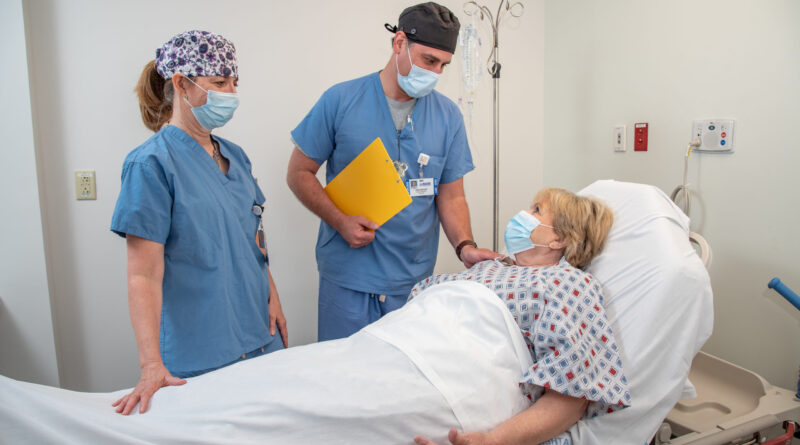Post-Surgery Recovery: Essential Tips for Healing
Undergoing surgery, whether planned or unexpected, can be a significant event that requires careful attention to the recovery process. Post-surgery recovery encompasses various aspects, including physical healing, pain management, emotional well-being, and lifestyle adjustments. In this blog post, we’ll explore essential tips and strategies aimed at promoting a smooth and effective recovery after surgery.
Understanding Post-Surgery Recovery
Post-surgery recovery involves the body’s natural healing processes, which are influenced by factors such as the type of surgery, individual health condition, and adherence to post-operative care guidelines. Whether recovering from major surgery or a minor procedure, prioritizing proper care and support is crucial for achieving optimal healing outcomes.
Be mindful that recovering from surgery at home requires rest, proper nutrition, and following your doctor’s instructions. Keep the surgical site clean, take medications as prescribed, and attend follow-up appointments. Home-based pain treatment is essential during post-surgery recovery to ensure comfort, promote healing, and prevent complications. Similar to RELATYV Home Based Pain Treatment in Florida, these services include proper pain management which help patients recover faster. Managing pain effectively at home also supports mental well-being, helping patients stay motivated and active within safe limits, which is crucial for a smoother recovery process.
Essential Tips for Smooth Recovery
1. Follow Medical Guidance: Adhere to the post-operative instructions provided by your healthcare provider. This may include medication schedules, wound care protocols, activity restrictions, and follow-up appointments. Compliance with medical guidance is pivotal for a successful recovery.
2. Pain Management: Effectively managing post-surgery pain is essential for overall comfort and well-being. Work closely with your healthcare team to ensure appropriate pain relief measures, which may include medications, physical therapy, relaxation techniques, or alternative pain management modalities.
3. Nutrition and Hydration: Nourishing the body with a balanced diet and staying adequately hydrated are fundamental for supporting the healing process. Consume nutrient-rich foods that promote tissue repair and maintain hydration levels to optimize recovery.
4. Gradual Activity Resumption: Gradually reintroduce physical activities and movements as guided by your healthcare provider. Balancing rest with gentle movement aids in preventing complications while promoting circulation and muscle strength.
5. Emotional Support: Acknowledge and address any emotional challenges that may arise during the recovery period. Seek support from loved ones, engage in activities that promote relaxation and positivity, and consider professional counseling if needed.
6. Wound Care and Monitoring: Properly care for surgical incisions or wounds as directed by your healthcare team. Monitor for signs of infection, excessive swelling, or unusual symptoms and promptly report any concerns to your healthcare provider.
7. Lifestyle Adjustments: Depending on the type of surgery, certain lifestyle modifications may be necessary during the recovery phase. These adjustments could encompass dietary changes, activity restrictions, or specific self-care practices tailored to promote healing.
8. Open Communication: Maintain open communication with your healthcare provider regarding any changes in symptoms, concerns about recovery progress, or questions about post-operative care. Clear and transparent communication fosters a collaborative approach to recovery.
Nurturing a Smooth Recovery Journey
By implementing these essential tips and strategies, individuals can actively contribute to a smoother and more effective recovery following surgery. Embracing a holistic approach that addresses physical, emotional, and practical aspects of recovery is instrumental in promoting overall well-being during this critical phase.
Managing Hashimoto’s Thyroiditis Post-Surgery
For patients in Salt Lake City recovering from surgery related to Hashimoto’s Thyroiditis, the treatment and management of this autoimmune condition don’t stop postoperatively. Post-surgery care is tailored to the unique needs of individuals dealing with Hashimoto’s, emphasizing both thyroid hormone balance and the careful monitoring of autoimmune activity.
Local endocrinologists and healthcare providers in the Salt Lake City area are equipped with specialized knowledge and resources to guide patients through the intricacies of post-surgery treatment. This includes adjusting medication dosages, advising on optimal nutrition to support thyroid health, and recommending lifestyle changes that mitigate stress on the body’s endocrine system. Managing Hashimoto’s effectively post-surgery involves a comprehensive plan that may extend to include support groups and integrative health approaches available in the Salt Lake City community.
Post-surgery recovery demands a comprehensive approach that prioritizes adherence to medical guidance, pain management, nutrition, emotional support, and active engagement in the healing process. By integrating these essential tips and strategies, individuals can navigate the recovery journey with greater confidence, resilience, and optimism.
Optimize your post-surgery recovery with these invaluable tips and strategies to facilitate a smooth healing process and promote overall well-being. Empower yourself with the knowledge and resources needed to nurture
